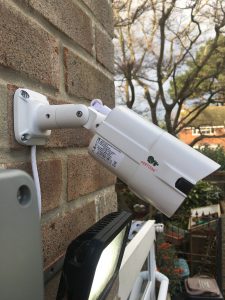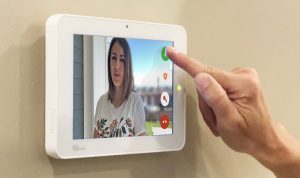
10 Things You Need to Know About Car Key Replacement
Losing a car key or dealing with a broken one can be a frustrating experience...

Smart is a word that’s bandied around indiscriminately these days. It started off with smartphone, then smart watch, smart this, smart that.
But what does “smart” actually mean?
According to Dictionary.com, smart is
dashingly or impressively neat or trim in appearance, as persons, dress, etc. having or showing quick intelligence or ready mental capability clever, witty, or readily effective, as a speaker, speech, rejoinder, etc.
And then
(of a machine, system, etc.) equipped with electronic control mechanisms, software programs, etc., and capable of remote, automated, and seemingly intelligent operation:
And I think that’s a pretty widely accepted definition of what “smart” has become.
The thing is, though, that I don’t think people are sticking to it.
There are lots of products out there which describe themselves as smart which I disagree with.
Twenty years ago, a mobile phone was a fantastic thing, you could make calls from anywhere, it held a list of your favourite numbers in it, you could send a text message, and some of the really flashy ones could send emails and access the web using something called “WAP.” And that was, by and large, it. Oh, and you could play Snake or Tetris.
But then this marvellous thing called a smartphone came along, and it was so much more. It was like having a little computer in the palm of your hand. Correction. It was, and continues to be, a little computer in the palm of your hand. Your smartphone has more computing power in it than was onboard Apollo 11 when it landed on the moon in 1969.
Think about what you can do with a smartphone.
You tell it the items in your diary, and it reminds you. And more than that, if you put the item in your diary on your laptop, your phone still reminds you.
You can access your documents, spreadsheets, etc., from anywhere, edit them, and the edits are saved ready for when your are back in front of your laptop.
You can communicate with people in dozens more ways, when you consider the proliferation of social media channels.
You can play your favourite music, and then have suggestions made to you of other music you might like, based on what you definitely do like.
Many of the apps on your smartphone can connect to each other, and communicate and share their data, such that you have little intervention into whatever it is they are doing.
That, to me, is smart.
In my industry, there are smart alarm systems and smart CCTV systems. I have both systems at home.

My smart alarm system allows me arm and disarm the system from wherever I am, it allows me to check the status of all the detectors and devices on the system.
My smart CCTV system allows me to check the footage straight away, from wherever I am.
I don’t think that’s smart. Don’t get me wrong, these things are a massive step forward from where we were 20 years ago, but I can’t really describe it as smart. It doesn’t automate anything. It doesn’t communicate with any other system.
Even more ridiculous is my smart washing machine. I know it’s smart because the lady in John Lewis told me so when I bought it. I can download an app (I haven’t) and this will allow me to turn it on from my phone. What is the point of that? I still have to go to the machine to load the washing in, put in the detergent and conditioner. I might as well turn it on while I’m there.
Just because something has an app, and you could do stuff with it on your phone does not, in my humble opinion, make it smart. There’s nothing “seemingly intelligent” about any of those things I’ve just described.
So what, you ask, does make something smart?
Well, I have a smart thermostat and a smart carbon monoxide detector. I consider these things smart. Why? My smart thermostat has recently gone into “Seasonal Economy” mode, where it has decided to set temperatures at certain times that will save me money. It decides on the temperature with no intervention from me. It’s automated, and seemingly intelligent.
My smart carbon monoxide detector will, if it detects carbon monoxide, tell my smart thermostat to turn off the boiler, so that no further carbon monoxide escapes. It doesn’t require my intervention to do that. It’s automated and seemingly intelligent.
So “smart”, to me, means that the various systems interact with each other, make decisions on their own, one system controlling another, the benefit of which to me, as a consumer and householder, is that I will save money, time and effort, and I will avoid emergencies.
You may wonder where “smart” is going. How will systems develop that can talk to each other, control each other, automating and making seeminly intelligent decisions.

Systems are now available which will take each of your home services, and turn them into an ecosystem of intelligence and automation.
By monitoring your smartphone’s location, a smart home can tell when you’ve left home, and ensure that the intruder alarm is set, the front door is locked, that the lights have been turned off, and reduce the temperature on the thermostat. Conversely, when you arrive home, the system can unset the alarm, and unlock the door.
A smart home system can have flood detectors in vulnerable places, and when it senses water leaks, it will turn off the water stop-cock.
It can check the weather forecast, and if rain is expected, it can turn off the garden irrigation system and close the windows.
It can do things as simple as drawing the curtains when it starts to get dark, or as complex as monitoring the temperature in individual rooms in the house, to control the radiator valve in that room.
Perhaps, though, I’m looking at it from the wrong perspective. Perhaps, if “smart” is being able to turn on my washing machine from my phone, then we need a new word for an automated ecosystem of controls. Does “intelligent” go far enough? Maybe “genius” or “Einstein” or “Hawking?”
To find out more, visit www.amberley-security.co.uk/smart-homes-qolsys

Losing a car key or dealing with a broken one can be a frustrating experience...

It’s no secret that home security is more crucial than ever, taking proactive steps to...

Keeping our homes safe is more important than ever in today’s unpredictable world. Installing door...
Lorem ipsum dolor sit amet, consectetur adipiscing elit.
For further information about Amberley Security, please do not hesitate to get in touch. We are always happy to help.